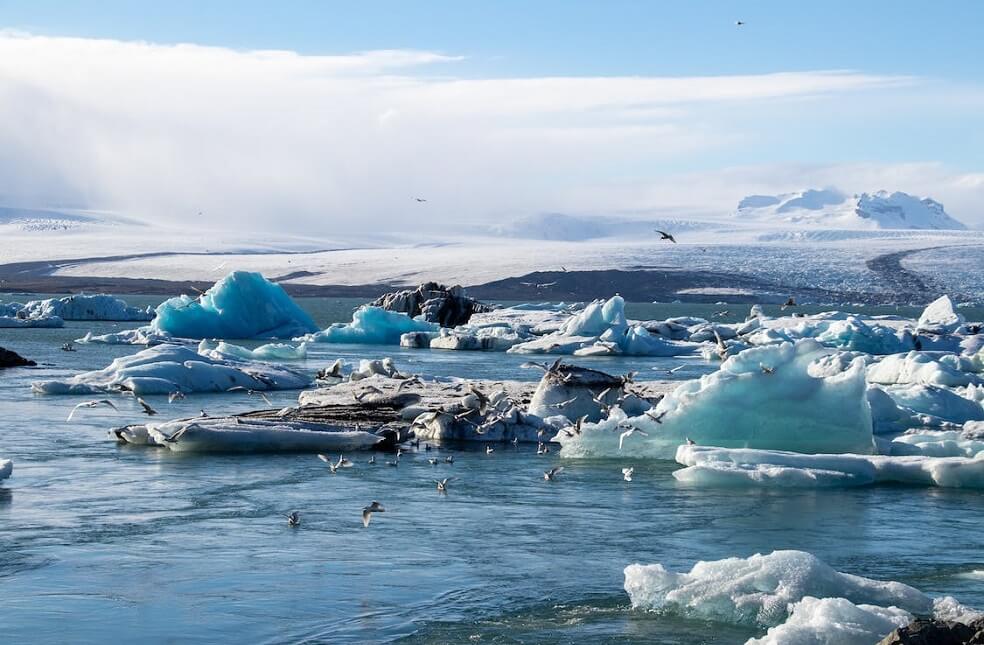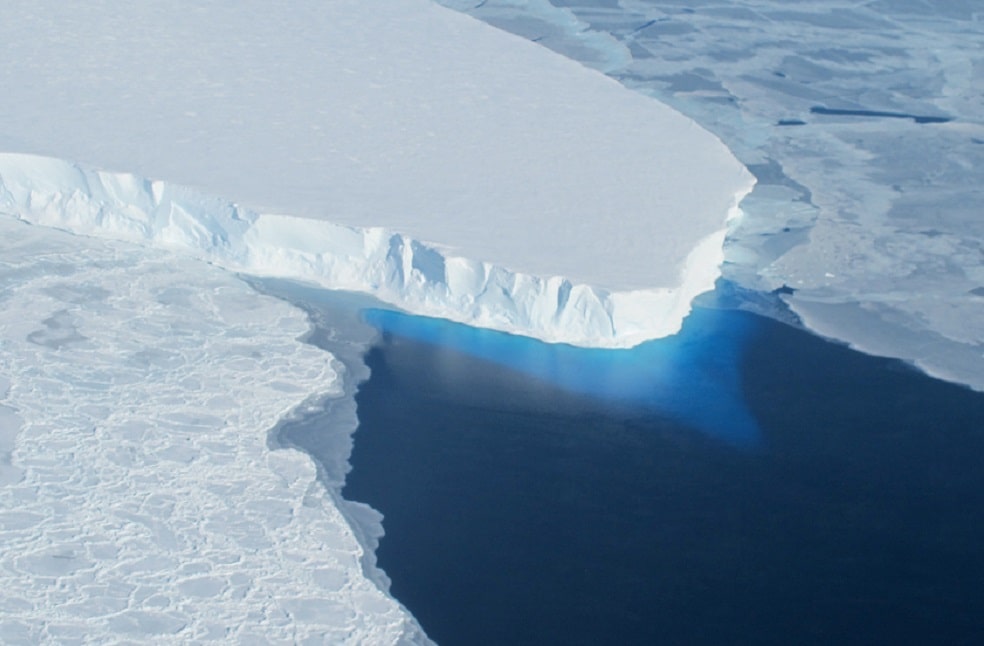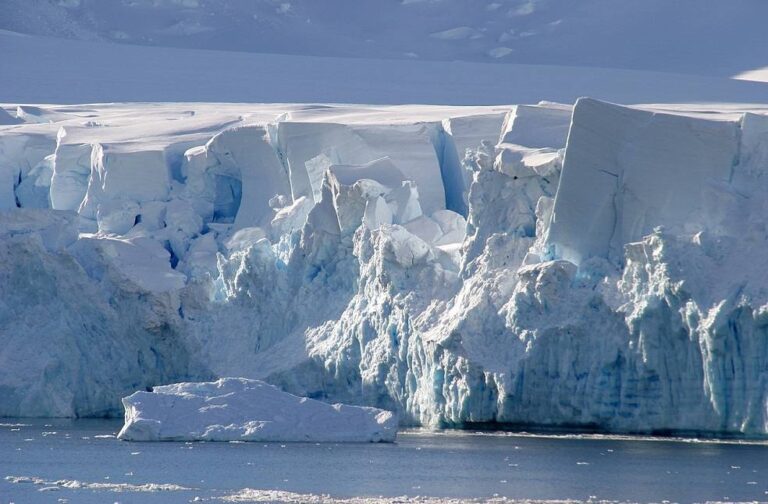Antarctica: A news study has stated that the accelerated ice melt in west Antarctica will continue for the rest of the century, no matter how much carbon emissions are cut. According to scientists, the consequences of sea level rise are “dire,” and some coastal cities may have to be abandoned.
The study noted that ice sheet of west Antarctica would push up the oceans by 5 meters if lost completely. Previous researchers have shown that it is doomed to collapse over the course of centuries, but the new study shows that even drastic emissions cuts in the coming decades may not prevent the melting.
According to the study, the melting rate of the floating ice shelves in the Amundsen Sea will be three times faster this century compared with the previous century, even if the world meets the most ambitious Paris agreement target of keeping global warming below 1.5 °C above pre-industrial levels.

The loss of floating ice shelves may lead to glacial ice sheets on land sliding more rapidly into the ocean. Therefore, millions of people who live in coastal cities are vulnerable to sea level rise since more than a third of the global population lives within 100 kilometers of the coast.
The climate crisis is resulting in significant sea level rise through the melting of ice sheets and glaciers as well as the thermal expansion of sea water. According to scientists, the biggest uncertainty in future sea level rise is what will happen in Antarctica, as well as making planning to adapt to the rise very hard.

“Our study is not great news—we may have lost control of the west Antarctic ice shelf melting over the 21st century. It is one impact of climate change that we are probably just going to have to adapt to, and very likely this means some coastal communities will either have to build [defences] or be abandoned,” Dr. Kaitlin Naughten, at the British Antarctic Survey, who led the work, commented.
According to Mr. Naughten, the research showed the situation was more serious than previously thought. “But we shouldn’t give up [on climate action] because even if this particular impact is unavoidable, it is only one impact of climate change. Our actions likely will make a difference [to Antarctic ice melting] in the 22nd century and beyond, but that’s a timescale that probably none of us today will be around to see,” the researcher further remarked.



